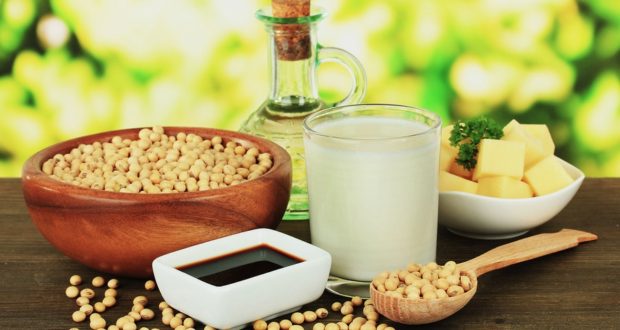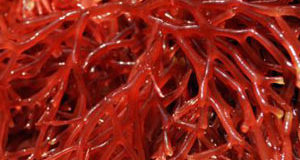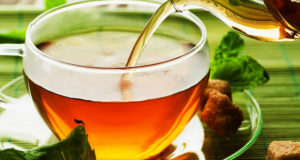Harvard School of Public Health Chan Center – We’ve been told that regularly eating soy-based foods lowers cholesterol, calms hot flashes, prevents breast and prostate cancer, aids weight loss, and wards off osteoporosis. Some of these benefits have been attributed to a unique characteristic of soybeans—their high concentration of isoflavones, a type of plant-made estrogen (phytoestrogen). However, some of the claims made for soy were based on preliminary evidence.
- In 1999, the Food and Drug Administration allowed companies to claim that diets low in saturated fat and cholesterol that also contain soy “may reduce the risk of heart disease.” (3) The claim was based on early research showing that soy protein lowered levels of harmful LDL cholesterol.
- A number of solid studies done since then have tempered this finding, (4) as well as those regarding soy’s effects on other conditions.
Heart disease
A 1995 meta-analysis of 38 controlled clinical trials showed that eating approximately 50 grams of soy protein a day in place of animal protein reduced harmful LDL cholesterol by 12.9 percent. (5)
- Such reductions, if sustained over time, would have meant a 20 percent reduction in the risk of heart attack, stroke, or other forms of cardiovascular disease. However, according to a comprehensive update of soy research by the nutrition committee of the American Heart Association (AHA) published in 2000, eating 50 grams of soy a day lowers LDL only about 3 percent. (4)
- Keep in mind that 50 grams of soy protein is more than half the average person’s daily protein requirement. It’s the equivalent of 1½ pounds of tofu or eight 8-ounce glasses of soy milk a day.
- Even though soy protein has little direct effect on cholesterol, soy foods are good for the heart and blood vessels because they usually replace less healthful choices, like red meat, and because they deliver plenty of polyunsaturated fat, fiber, vitamins, and minerals, and are low in saturated fat.
Hot flashes
Soy has also been investigated as a treatment for hot flashes and other symptoms that often accompany menopause. In theory, this makes sense because soybeans are rich in isoflavones, a form of plant-based estrogen – so they could cool hot flashes by giving a woman an estrogen-like boost during a time of dwindling estrogen levels.
- However, some carefully controlled clinical studies have not found this to be the case. (6, 7) When the AHA reviewed the evidence in 2006, it concluded that it was “unlikely that soy isoflavones have enough estrogenic activity to have an important impact” on hot flashes and other symptoms of menopause. (4)
- This is a controversial area of research, and more studies are needed.
Breast cancer
Phytoestrogens don’t always mimic estrogens. In some tissues, they actually block the action of estrogen. If soy’s estrogen-blocking action occurs in the breast, then eating soy could, in theory, reduce the risk of breast cancer because estrogen stimulates the growth and multiplication of breast and breast cancer cells.
- But studies so far haven’t provided a clear answer. Some have shown a benefit between soy consumption and breast cancer while others show no association. (4, 8-10)
- What’s more, a handful of unsettling reports suggests that concentrated supplements of soy proteins may actually stimulate the growth of breast cancer cells. (11-13)
- The timing of soy intake may make a difference: The Shanghai Women’s Health Study, for example, found that women with the highest soy protein intakes throughout adolescence and early adulthood had nearly a 60 percent lower risk of pre-menopausal breast cancer than women with the lowest intakes. (14)
- In one study of breast cancer survivors, both U.S. and Chinese women, soy food consumption was associated with a reduced risk of breast cancer recurrence.
Other cancers
Although substances in soy could conceivably protect against endometrial, ovarian, colorectal, prostate, and other cancers, there is no strong evidence for this.
Memory and cognitive function
A few studies have raised the possibility that eating soy could help prevent the age-related loss of memory or decline in thinking skills.
- Trials have yielded contradictory results, with one showing a benefit for soy, (15) and others showing no benefit. (16-19)
- Other studies suggest that too much soy could lead to memory problems. Among older women of Japanese ancestry living in Hawaii, those who relied on the traditional soy-based diet were more likely to have cognitive problems than those who switched to a more Western diet. (20) This finding, which has yet to be confirmed by other long-term studies, could result from excessive intake of phytoestrogens or inadequate intake of something found in animal products, such as vitamin B-12.
- Finally, there’s no evidence that pills containing isoflavones extracted from soybeans offer benefits, and some studies raise concerns about harmful side effects. (4)
References
1. Halton, T.L. and F.B. Hu, The effects of high protein diets on thermogenesis, satiety and weight loss: a critical review. J Am Coll Nutr, 2004.23(5): p. 373-85.
2. Westerterp-Plantenga, M.S., et al., Dietary protein, weight loss, and weight maintenance. Annu Rev Nutr, 2009. 29: p. 21-41.
3. Code of Federal Regulations. Health claims: Soy protein and risk of coronary heart disease. 21CFR101.82. 2001.
4. Sacks, F.M., et al., Soy protein, isoflavones, and cardiovascular health: an American Heart Association Science Advisory for professionals from the Nutrition Committee. Circulation, 2006. 113(7): p. 1034-44.
5. Anderson, J.W., B.M. Johnstone, and M.E. Cook-Newell, Meta-analysis of the effects of soy protein intake on serum lipids. N Engl J Med, 1995.333(5): p. 276-82.
6. Krebs, E.E., et al., Phytoestrogens for treatment of menopausal symptoms: a systematic review. Obstet Gynecol, 2004. 104(4): p. 824-36.
7. Kronenberg, F. and A. Fugh-Berman, Complementary and alternative medicine for menopausal symptoms: a review of randomized, controlled trials. Ann Intern Med, 2002. 137(10): p. 805-13.
8. Trock, B.J., L. Hilakivi-Clarke, and R. Clarke, Meta-analysis of soy intake and breast cancer risk. J Natl Cancer Inst, 2006. 98(7): p. 459-71.
9. Michels, K.B., et al., Diet and breast cancer: a review of the prospective observational studies. Cancer, 2007. 109(12 Suppl): p. 2712-49.
10. Linos, E. and W.C. Willett, Diet and breast cancer risk reduction. J Natl Compr Canc Netw, 2007. 5(8): p. 711-718.
11. de Lemos, M.L., Effects of soy phytoestrogens genistein and daidzein on breast cancer growth. Ann Pharmacother, 2001. 35(9): p. 1118-21.
12. Allred, C.D., et al., Soy diets containing varying amounts of genistein stimulate growth of estrogen-dependent (MCF-7) tumors in a dose-dependent manner. Cancer Res, 2001. 61(13): p. 5045-50.
13. Taku, K., et al., Extracted or synthesized soybean isoflavones reduce menopausal hot flash frequency and severity: systematic review and meta-analysis of randomized controlled trials. Menopause, 2012. 19(7): p. 776-90.
14. Lee, S.A., et al., Adolescent and adult soy food intake and breast cancer risk: results from the Shanghai Women’s Health Study. Am J Clin Nutr, 2009. 89(6): p. 1920-6.
15. Kritz-Silverstein, D., et al., Isoflavones and cognitive function in older women: the SOy and Postmenopausal Health In Aging (SOPHIA) Study.Menopause, 2003. 10(3): p. 196-202.
16. Kreijkamp-Kaspers, S., et al., Effect of soy protein containing isoflavones on cognitive function, bone mineral density, and plasma lipids in postmenopausal women: a randomized controlled trial. JAMA, 2004. 292(1): p. 65-74.
17. Fournier, L.R., et al., The effects of soy milk and isoflavone supplements on cognitive performance in healthy, postmenopausal women. J Nutr Health Aging, 2007. 11(2): p. 155-64.
18. Ho, S.C., et al., Effects of soy isoflavone supplementation on cognitive function in Chinese postmenopausal women: a double-blind, randomized, controlled trial. Menopause, 2007. 14(3 Pt 1): p. 489-99.
19. Basaria, S., et al., Effect of high-dose isoflavones on cognition, quality of life, androgens, and lipoprotein in post-menopausal women. J Endocrinol Invest, 2009. 32(2): p. 150-5.
20. White, L.R., et al., Brain aging and midlife tofu consumption. J Am Coll Nutr, 2000. 19(2): p. 242-55.
 Vitamin Agent The Health & Naturalistic Source
Vitamin Agent The Health & Naturalistic Source





